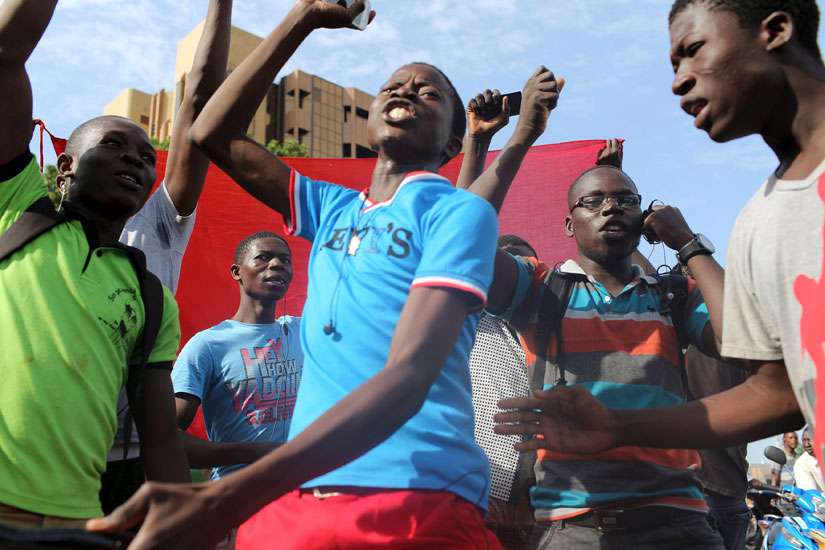"The taking hostage of Faso's president and his government put a brutal end to the transition process and popular expectations," the bishops' conference said in a Sept. 20 message.
"This coup d'etat has brought sanctions from the African Union and many of our country's partners, which are hitting ever harder at our populations, already living precariously," the statement added. "If the sanctions have to be prolonged, we can only imagine the catastrophe they will engender."
The bishops issued the message as coup leaders -- led by Gen. Gilbert Diendere -- struggled to impose control over the landlocked country, one of the world's poorest, after arresting its transitional president, Michel Kafando and acting prime minister, Lt. Col. Isaac Zida. Burkina Faso's regular army gave the general a surrender ultimatum, which he defied.
The bishops urged Catholics to "pray fervently" that parliamentary and presidential elections, set for Oct. 11, would still go ahead "peacefully and credibly," and to show "compassion and solidarity" by donating to a church fund for coup victims. However, at least 10 people were killed and more than 100 injured in the coup.
They appealed "to the wisdom of our leaders and the international community to spare us from sufferings our people bear no responsibility for," they said. "Let all involved parties start a true, clear and frank dialogue which respects the values for which our people rebelled."
The Catholic Church makes up 19 percent of Burkina Faso's population of 16.5 million, according to a 2006 census; Muslims make up half the population.
The former French colony, which is viewed as a Western ally against Islamist militancy, has been supervised by a 90-member National Transitional Council since October 2014 riots led to the flight of President Blaise Compaore, who is now based in Ivory Coast after 27 years in power.
Diendere released Kafando and Zida following talks brokered by mediators, and said he would accept a peace plan by West African heads of state if it included an amnesty for the coup plotters.
In July, the Catholic Church launched a program "for consolidating democracy and social cohesion," which was to include training youth leaders, educators and legal advisers in "peace-building, nonviolence, citizenship and democracy" in Burkina Faso's three archdioceses and 12 dioceses.
In a Sept. 6 pastoral letter, the 16-member bishops' conference said the country had witnessed five years of "hesitation, turbulence and violent protest" since celebrating its independence anniversary in 2010 and now needed every Christian to "join in constructing their homeland in a spirit of service," based on "cardinal values of forgiveness, integrity, friendship and peaceful cohabitation."
The letter added that African church leaders had proclaimed a "continental year of reconciliation," to run until July 2016, but said democratic transitions in Africa had generally been marred by "a lack of confidence in political actors and manifest indignity and bad faith," as well as violent post-election conflicts.


